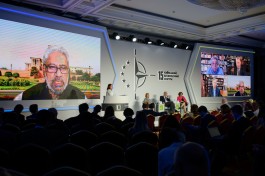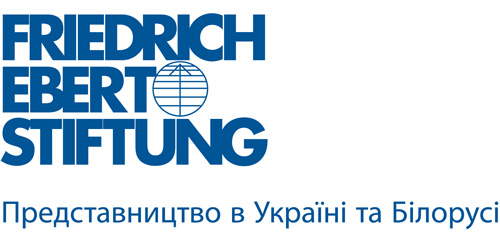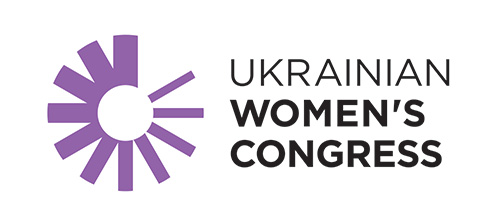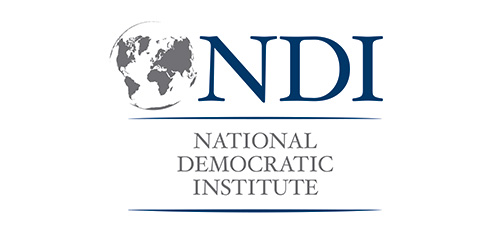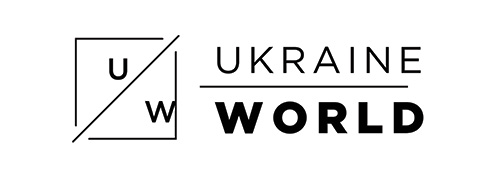Countries of Central Europe are at development stage, one cannot expect very rapid progress from them - Karel Schwarzenberg
The current differences in political and economic processes in the countries of Western and Central Europe take place due to different stages of historical development which they passed. Karel Schwarzenberg, Chairman of Foreign Affairs Committee of the Chamber of Deputies and Minister for Foreign Affairs of the Czech Republic (2007-2009, 2010-2013), uttered this in a special speech at the 10th Kyiv Security Forum held by the Arseniy Yatsenyuk Foundation Open Ukraine.
Karel Schwarzenberg stressed the joint characteristic of the Western Europe countries in the 16th-18th centuries, when they had conducted “bottom-up” reforms, and where the situation had changed due to the revolutions. In the Central Europe (the Austro-Hungarian Empire – ed.) the changes were implemented by educated leaders. “For me, the Central Europe is the part where changes came from the top”, he noted.
At the same time, the expert reminded that the Central Europe had been divided in the 20th century: “The Second World War divided this territory. And the most part of it fell under the influence of the Soviet Union, while Austria and a part of Germany remained in the free world”.
“Therefore, we believe that the Communist era was the time of a certain freezing of free thought and we cannot quickly overcome this gap. The Communist rule was a large freezer, which froze a lot of processes”, he added.
According to Karel Schwarzenberg, today it is evident that this region has “no established democratic thought”. Moreover, in some of these countries, there is a drift to authoritarian symptoms and a risk of a return to the old system.
“In two Visegrad countries there is a tendency to authoritarian manifestations, and it is stronger than in the rest of Europe. As for Romania, there are no large problems. But in Hungary, the position of the Prime Minister is strong, as there is practically no opposition. This gives the temptation to squeeze the society, there is a risk of returning to the old system”, the expert noted.
At the same time, he acknowledged that democracy was always under threat, as the people in power always want more power. “I don’t like fighting with non-governmental organizations in Budapest, for example. But these countries are still far from a dictatorship, and I have not seen any case of putting in jail for political beliefs in Hungary or in Poland”, Karel Schwarzenberg stressed. In his opinion, under such conditions, the EU should engage in a dialogue with Hungary, but it should not compare it to a fascist dictatorship, “it should not overreact or push too hard”.
“These countries are at the development stage, one cannot expect very rapid progress from them”, he concluded.
For reference:
Kyiv Security Forum was launched by the Arseniy Yatsenyuk Foundation Open Ukraine in 2007 is an annual international event to high-level discussions on the current issues in the Black Sea region and wider Europe. The Forum aims at increasing security cooperation between the EU and the Black Sea region, raising awareness about regional developments among key regional players, promoting the role of independent and non-governmental actors in setting the security agenda in Europe.


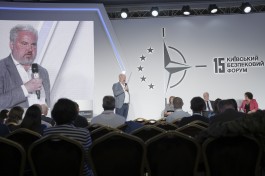

-tmb-265x176.jpeg)

